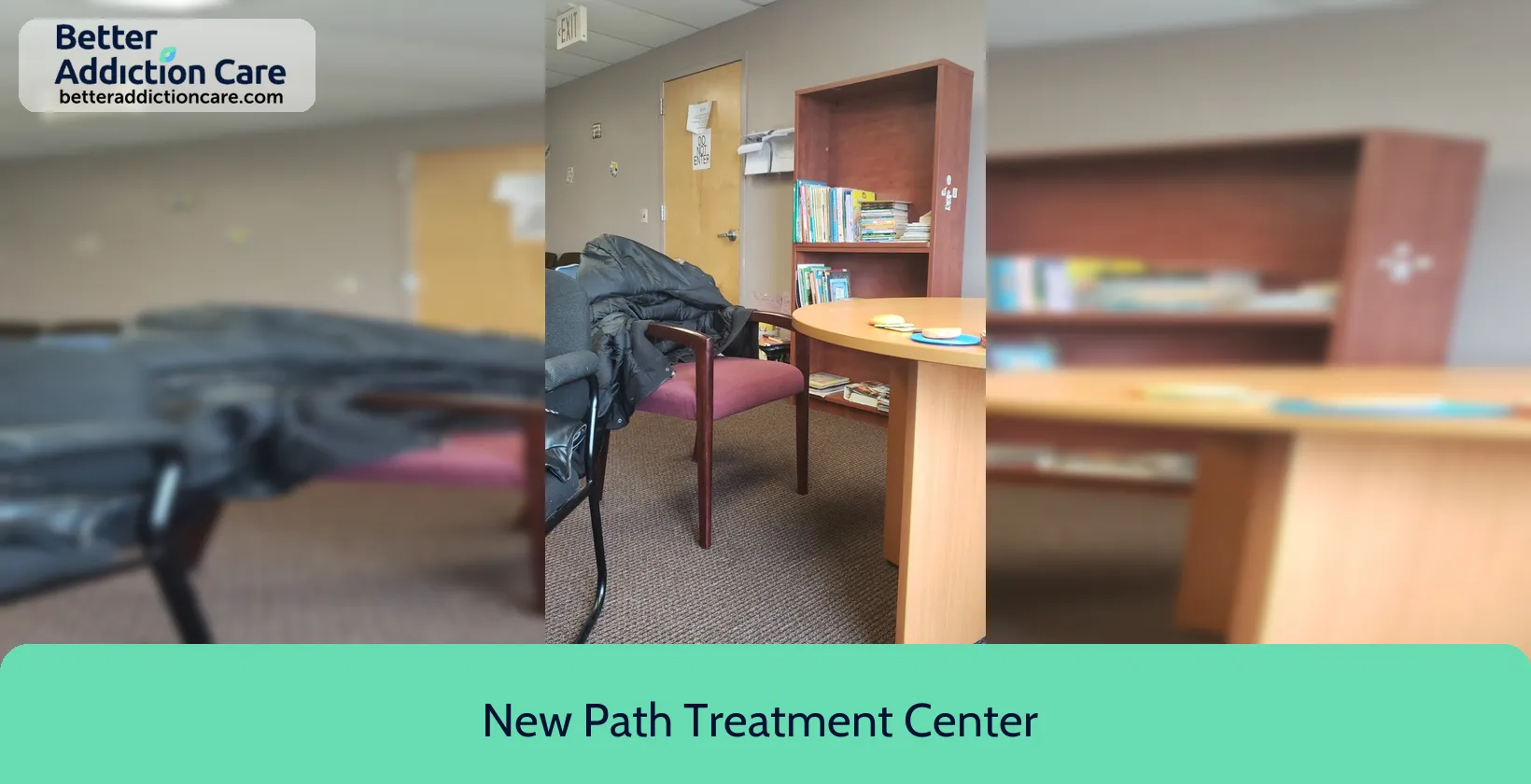New Path Treatment Center - EAC Network
Overview
New Path Treatment Center - EAC Network is a substance abuse treatment center for people seeking treatment near Nassau County. As part of their treatment modalities for recovery, New Path Treatment Center - EAC Network provides cognitive behavioral therapy, telemedicine/telehealth therapy, and substance use disorder counseling during treatment. New Path Treatment Center - EAC Network is located in Hempstead, New York, accepting cash or self-payment for treatment.
New Path Treatment Center - EAC Network at a Glance
Payment Options
- Cash or self-payment
- Medicaid
- State-financed health insurance plan other than Medicaid
- Private health insurance
- Federal, or any government funding for substance use treatment programs
Assessments
- Screening for tobacco use
- Comprehensive mental health assessment
- Comprehensive substance use assessment
- Interim services for clients
- Outreach to persons in the community
Age Groups
- Seniors or older adults
- Young adults
- Adults
Ancillary Services
- Case management service
- Specially designed program for DUI/DWI clients
- Domestic violence services, including family or partner
- Early intervention for HIV
- Mental health services
Highlights About New Path Treatment Center - EAC Network
7.39/10
With an overall rating of 7.39/10, this facility has following balanced range of services. Alcohol Rehabilitation: 8.00/10, Drug Rehab and Detox: 7.85/10, Insurance and Payments: 6.00/10, Treatment Options: 7.70/10.-
Alcohol Rehabilitation 8.00
-
Drug Rehab and Detox 7.85
-
Treatment Options 7.70
-
Insurance and Payments 6.00
Treatment At New Path Treatment Center - EAC Network
Treatment Conditions
- Alcoholism
- Substance use treatment
Care Levels
- Outpatient
- Outpatient methadone/buprenorphine or naltrexone treatment
- Intensive outpatient treatment
- Regular outpatient treatment
- Aftercare
Treatment Modalities
- Cognitive behavioral therapy
- Telemedicine/telehealth therapy
- Substance use disorder counseling
- Trauma-related counseling
- Smoking/vaping/tobacco cessation counseling
Ancillary Services
Additional Services
- Pharmacotherapies administered during treatment
- Mentoring/peer support
- Breathalyzer or blood alcohol testing
Special Programs
- Clients with co-occurring mental and substance use disorders
- Criminal justice (other than DUI/DWI)/Forensic clients
- Clients with HIV or AIDS
- Clients who have experienced trauma
- Clients who have experienced intimate partner violence, domestic violence
Get Help Now
Common Questions About New Path Treatment Center - EAC Network
Contact Information
Other Facilities in Hempstead

6.68

7.07
DISCLAIMER: The facility name, logo and brand are the property and registered trademarks of Center for Rapid Recovery, and are being used for identification and informational purposes only. Use of these names, logos and brands shall not imply endorsement. BetterAddictionCare.com is not affiliated with or sponsored by Center for Rapid Recovery.

